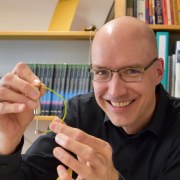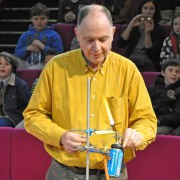Find this session's presentations here.
What we know and believe about the world and about life is not always what is known to be scientifically correct. Often we are not aware of these so-called misconceptions and hold on to them dearly. Not without reason: simplifications and misconceptions help our brain to cope with the complexity of the world and make life practicable. They do however shape our perception and actions and determine how we acquire knowledge about the world. Debunking misconceptions thus allows us to escape the vicious cycle of half-truths and enrich our lives.
Efficient learning and real change starts with the identification of pre-concepts and misconceptions. To become aware of our misconceptions we need experiences that contradict our predictions and baffle our minds. Only then are we willing to let go of our views and be open to new experiences and ideas. In this session each speaker will present his or her favourite misconception and ways to debunk it through an interactive exhibit or another hands-on activity.








